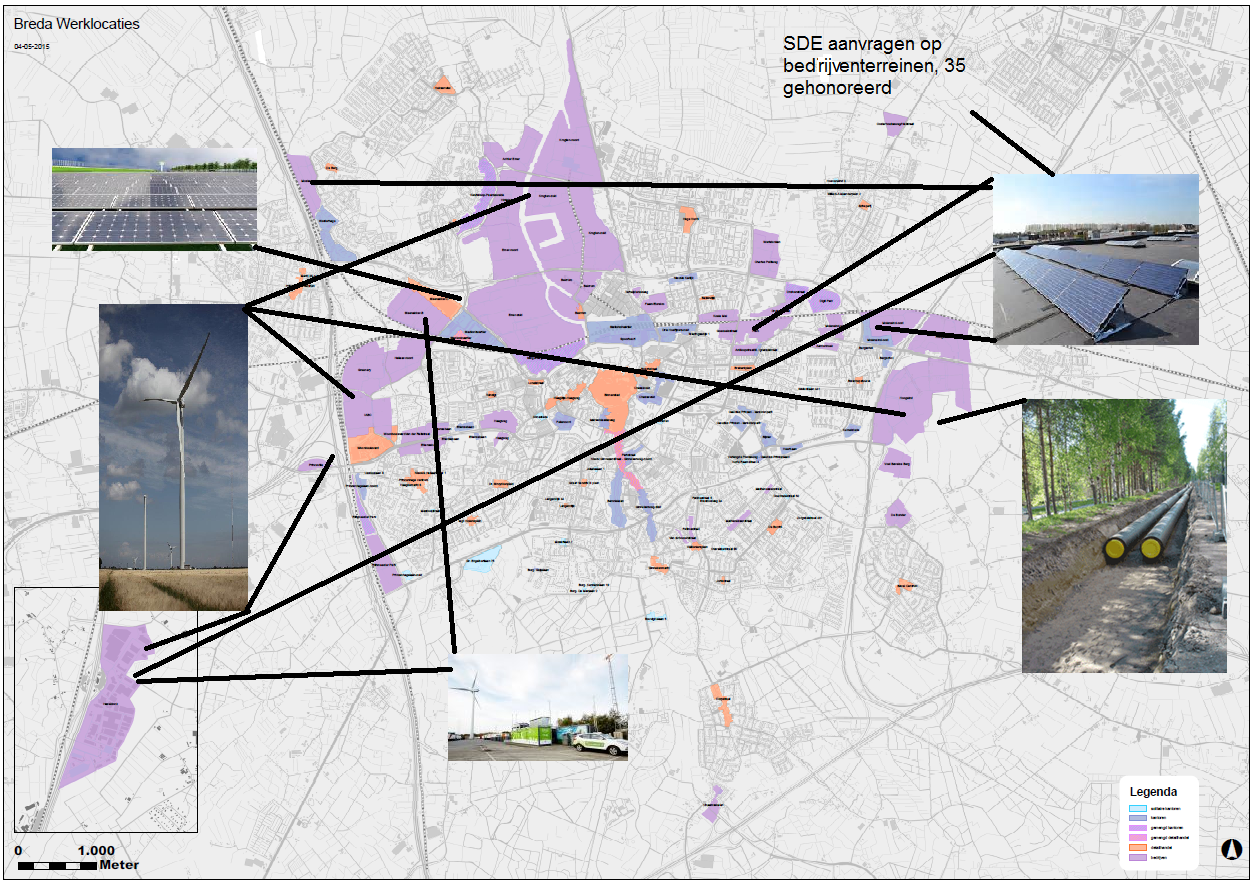The local government connects the supply and demand side by acting like a networker who facilitates and stimulates the market and unburdens companies who want to invest in sustainable and saving energy.
The business parks contribute to BISEPS by supporting the SMEs both financially and with their time. During the project letters of intent will be signed by at least 2 of the 6 business park cooperation’s in Breda.
The aim of the existing climate act network is to learn and share idea’s with each other. Technical, organisational and financial opportunities will be offered and we will work together in the market of sustainable and saving energy. It’s our goal to integrate the supply side in the network of the demand side.
The government supports existing networks and creates, if needed, new networks. BISEPS is an example of a new transnational network. The strategy of communication is to use (new, marketing) communication methods to connect sustainable energy to the existing networks like the Business park cooperations, the climate act network of Breda and the region.
A first step in this process can be a direct marketing approach to encourage early adapting companies to invest in heat, wind and/or sun energy or saving energy. These early adaptors can be the ambassadors for the follow up.
Breda already has experience with all kinds of approaches such as Area ESCOs, BIZ (Business Investing Zones) or energy cooperation’s. But our aim is to create a new local sustainable energy market on the business parks and to put into place the first steps in the development of smart grids.

Results
Breda was able to draw on an established programme of cooperation with businesses to set up a living lab. As part of the BISEPS project, Platform BV Breda was founded by and for entrepreneurs on the business parks. They created the Breda-Energie foundation, that is responsible for the broad roll-out of solar energy installations to all business parks in Breda. The other partners in the platform are an energy company, the network owner, and the Brabant Development Company of the province of Noord-Brabant. The energy that is not consumed locally is supplied to other companies in Breda through the Breda Energy Foundation
The living lab case study made five recommendations.
- Connect supply side (energy sector) with the demand side and support both sides to cooperate.
- Use existing networks that are already cooperating within the business cluster. Provide information from energy companies, grid owner and finance providers.
- Identify potential revenue models that support a cooperative approach and discuss these with existing organisations or facilitators (i.e. the local BID).
- Support the cooperating businesses to make action plans and business cases for investment.
- Support businesses to roll out and operate projects.